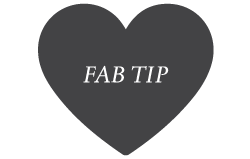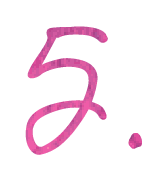FAB BLOG POST
How To Forgive For Your Health
Read More
Have you ever had someone or something done to you that is just unforgivable? You may have been paralyzed in disbelief that someone could have acted the way they did. By not forgiving, you may be setting yourself up for emotional setbacks and health hazards.
I truly believe that forgiveness is not so much a lesson but a practice we all need to learn and implement as much as possible. Not for others, but more for our own peace of mind. And yes, it’s OK to be selfish.
You deserve to feel all the feelings of what happened to you and how you felt after a specific event.
And you are absolutely worthy of letting go of that situation so it doesn’t pain you and bring you down any longer.
You deserve to feel free and open yourself up again without fear of the same thing happening.
If someone’s ever hurt you and you’ve had thoughts of, “How can I ever forgive this person” or “What they did was so WRONG,” this blog is a must read.
It will help you strengthen the skill to forgive and give you the tools to move forward and set yourself free from the negativity that’s ultimately holding you back.

- My 5 step Formula to Forgiveness
- Why practicing forgiveness gives you health freedom
- Motivating forgiveness factors
Forgiveness is an act of health and self-love. Both big and small.
Maybe your top strength is forgiveness. Or maybe you need to work at it. Either way, you’re not alone. What I’ve come to find is that forgiveness is a journey. It’s a windy road that takes time and patience and often isn’t accomplished overnight.
What inspired me to forgive was looking at how others forgave in times when it didn’t seem possible and to understand how these situations affect your overall health. For example: The holocaust survivor who forgave the Nazi for killing her entire family. Or what about the mother who forgives the midwife for abandoning her half-way through her labor? Or the women who forgives her partner for the betrayal in their marriage?
The common theme throughout these stories is forgiveness is an act of health and self-love. Realizing that forgiveness is not really for the other person, it’s truly a gift for you. Think of forgiveness as a skill – a muscle that you need to build over time. Forgiveness or learning to forgive doesn’t happen overnight. It takes practice and once learned can be used quite quickly.
Forgiveness stems from the latin root “perdonare” or “pardon” meaning to give without reservation. But forgiveness does not mean to forget. I love this definition of forgiveness by a professor at my alma matar: Bob Enright, PhD, a psychologist at the University of Wisconsin, Madison, who pioneered the study of forgiveness three decades ago.
True forgiveness goes a step further, he says, offering something positive—empathy, compassion, understanding—toward the person who hurt you. That element makes forgiveness both a virtue and a powerful construct in positive psychology.
Some of my favorite empathy provoking questions are the following:
- What’s it like to be in their shoes?
- How do you want to feel towards this person ultimately?
- If the antidote to anger is empathy, what does it look like for you to show some empathy towards the other person even though they might have hurt you?
Why forgive? For starters, there’s both physical, mental and emotional health benefits. How often do you replay the situation in your head and are consumed with the feelings and thoughts it presents?
This constant replay is another form of trauma. Unforgiven traumas and incidents etc… flood the brain and body with stress hormones. They cause mental anguish and a host of additional physical, emotional and mental issues.
In a study, participants were followed for five weeks and their levels of forgiveness were measured. Here’s the findings: when forgiveness rose, levels of stress went down. Reduced stress, in turn, led to a decrease in mental health symptoms (Annals of Behavioral Medicine, 2016).
Research has shown that forgiveness is linked to mental health outcomes such as reduced anxiety, depression and major psychiatric disorders, as well as with fewer physical health symptoms and lower mortality rates.
In fact, there’s a whole book on it called Forgiveness & Health. When we show up in place of pain, hurt and extreme anger and reframe it, looking at it as a place to heal from for our own goodness, forgiveness becomes more tangible and manageble. Here’s some additional benefits of forgiveness:
Mental/Emotional:
- Healthier relationships with others and self
- Increased self-esteem
- Increased capacity for empathy
- Less feelings of anxiety, stress, depression
- Greater spiritual/psychological well-being
- Great self-awareness
Physical
- Longer life
- lower pain
- Strong immune system
- Less stress
Forgiveness truly is a tool that really helps you change internally. It does not condone the situation or behavior of the other person, but it allows you to handle the emotions and to personally take an empowering stand for how you’ll handle the situation.
Forgiveness is a Gift You Give Yourself.

Five Steps to Forgive
There are many ways to practice forgiveness. My encouragement is to try different models that work for you. Here’s one way I love to forgive.
![]() First, identify situations or people (including yourself) that you have not yet forgiven in one column. Grab a piece of paper and start listing.
First, identify situations or people (including yourself) that you have not yet forgiven in one column. Grab a piece of paper and start listing.
![]() Then ask yourself, “What impact has not forgiving this situation or person had on me?” Note in the column next to the person.
Then ask yourself, “What impact has not forgiving this situation or person had on me?” Note in the column next to the person.
Note: This is one of the simplest but often most difficult things to do because it brings up certain memories, feelings and pain.
 Do this exercise is a calm, neutral place where you feel safe.
Do this exercise is a calm, neutral place where you feel safe.
Now, the actual process of forgiveness can be quite simple and freeing.
![]() Next, you’ll want to write down what you’d like to forgive (paper is best for this specific exercise). Maybe it was something someone said or did or something that wasn’t said or done. Write down each thing you would like to forgive others for, forgive yourself for or be forgiven for.
Next, you’ll want to write down what you’d like to forgive (paper is best for this specific exercise). Maybe it was something someone said or did or something that wasn’t said or done. Write down each thing you would like to forgive others for, forgive yourself for or be forgiven for.
![]() The fourth step is all about feeling and releasing those deep emotions that you’ve locked away. As you review who you’re forgiving, the impact not forgiving has had on you, what it is that you’d like to forgive, you can finally ask yourself if you do want to forgive. If that answer is yes, go ahead and write down what you’re forgiving, feeling and releasing on to a sheet of paper. Maybe it’s betrayal, lack of trust, hurt or pain. As uncomfortable as the process may seem, remember feeling is healing. Write down all the feelings and emotions: fears, frustrations, secret desires, values, emotional needs that have not been met, get it all out. Be as comprehensive and detailed as possible – giving each situation its own slip of paper.
The fourth step is all about feeling and releasing those deep emotions that you’ve locked away. As you review who you’re forgiving, the impact not forgiving has had on you, what it is that you’d like to forgive, you can finally ask yourself if you do want to forgive. If that answer is yes, go ahead and write down what you’re forgiving, feeling and releasing on to a sheet of paper. Maybe it’s betrayal, lack of trust, hurt or pain. As uncomfortable as the process may seem, remember feeling is healing. Write down all the feelings and emotions: fears, frustrations, secret desires, values, emotional needs that have not been met, get it all out. Be as comprehensive and detailed as possible – giving each situation its own slip of paper.
 Next, using a fire pit and/or a big metal pot, read the strips of paper one by one, feel what you need to feel. Letting all emotions surface. With a lighter – light that piece of paper on fire, sending it off with good thoughts or throwing it into a fire pit and releasing all the negativity that goes along with that situation.
Next, using a fire pit and/or a big metal pot, read the strips of paper one by one, feel what you need to feel. Letting all emotions surface. With a lighter – light that piece of paper on fire, sending it off with good thoughts or throwing it into a fire pit and releasing all the negativity that goes along with that situation.
Repeat this process as many times as needed and for each individual person or thing you want to forgive.
You’re not only forgiving the other person or situation, you’re also forgiving yourself. Be fully present with yourself and your body. Acknowledge and demonstrate that you are listening to yourself.
Maybe that looks like heading to bed earlier than normal because you’re tired or indulging in a piece of chocolate or reading your favorite book for comfort.
As you start to encounter and bring up more and more situations that need forgiveness, you may start to notice things in your mind or body like a headache, backache or sore throat.
That’s because we store our emotional issues in our tissues. Write down anything that comes up physically and/or emotionally. It will be important as you go through the forgiveness process to see what issues are released when you forgive and to focus on how you feel afterwards.

Once you’ve read this blog, I’d love to hear from you! Has anyone ever done something that seems unforgivable and then you find the strength to forgive? How’d you do it? Let us know. Or maybe there’s something you want to forgive in your life or some person. What’s one small step you’ll take today to start moving towards the direction of forgiveness?
Leave a comment below and share as much detail as you can. People come here to be inspired and empowered and your comment, story or insight may be just what they need to hear to take the next step forward or have a major Aha moment.
Make sure to share your thoughts directly below in the comments. Thank you so much for reading, sharing and your vulnerability. It’s what truly creates connection. No matter what you do, someone or something will end up hurting you. Learn to forgive and move forward.



